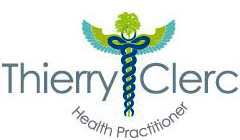This short document on hormonal issues was published after a holistic talk and is re-published on this website. Thierry Clerc practices in Cambridge (UK) as a clinical homeopath and a nutritionist. He is a regular contributor of several national and international health magazines.
Hormonal Issues and Homeopathy
A lot of women visit a complementary health practitioner because they find it very difficult to get on with life when they have their monthly periods (known medically as ‘menses’). However, even more women put up with distressing symptoms, thinking they are a normal and unfortunate part of life.
As we like to point out, a normal cycle should be symptom-free and especially pain-free. If not, could we imagine life four or five generations ago when most women had to work in the field or in a house all day long? On average, a woman will menstruate about 550 times in her life. Why would nature be so mean?
For a holistic point of view, what usually goes wrong?
The menstrual cycle is normally extremely well regulated, and governed by the pituitary gland, located deep in our brain. After ovulation, sex hormones such as oestrogen and progesterone increase heavily in the bloodstream to prepare the body for possible pregnancy. When fertilisation has not occurred, the pituitary gland asks the body to clear the womb, triggering menses.
This big shift puts pressure on the whole of the body’s resources. Poor nutritional habits, chronic stress and toxicity all take their toll on the body’s ability to deal with these hormonal changes.
Why Synthetic Hormones are not such a good idea?
The main conventional approach is to prescribe the birth control pill, in effect synthetic oestrogen and progesterone (up to 20 times what the body produces). While this can bring temporary improvement, women on the pill should be aware that this is a major hormonal disrupter with a wide range of side-effects. The most common side-effects reported on the US site www.drugs.com are:
– Liver & metabolic issues – hepatitis, jaundice, nausea (very common), gallstones, diabetes, osteoporosis
– Hormonal – fibroid, ovarian cancer, endometriosis, breast cancer (with a doubling of chances)
– Digestive system – flatulence & weight gain (very common)
– Nervous – mood change (very common), depression, loss of libido
– Cardiovascular –irregular heartbeat (25% increase), thrombosis, blood clots (triples the risk)
This is primarily because the liver has to deal with processing this huge hormonal load, and this has an impact on both the liver’s functions and the hormonal system.
If you are concerned, check your prescription or on the following website for your specific pill: www.netdoctor.co.uk, or talk to your GP.
If you have hormonal issues, follow a strict and simple diet, easy on your digestive system, and also take some herbal support for your liver (please drop me an email for some free advice). A full investigation however is probably the best way to discover whether your specific problems will respond well to a holistic approach.

